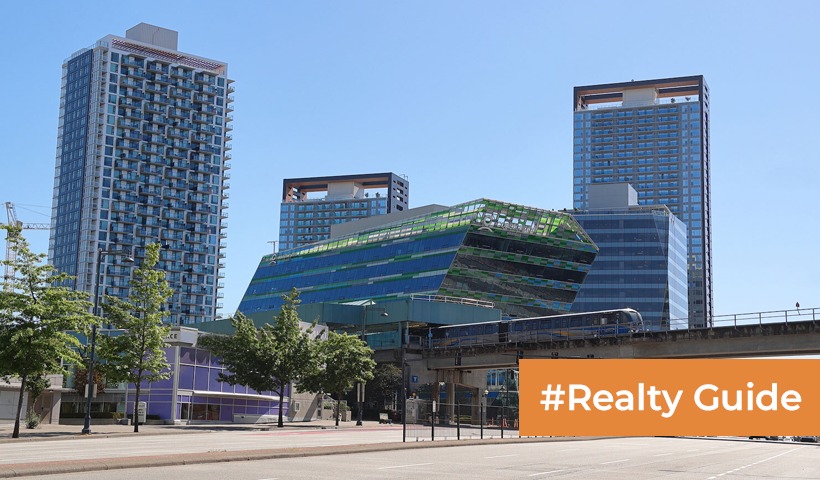Freehold property and land: Meaning, title and ownership explained
For the duration of their lives, the building and the land it is situated on are owned by the owner, society, or residents’ welfare group in a freehold property. Typically, a freehold is obtained by a lottery or sale. As a result, when the project is completed, the cost of the freehold land will be factored into the final unit cost.
What is Freehold Property?
Property that is “free from hold” by any entity other than the owner is known as freehold property. As a result, the owner of such an estate has perpetual free ownership and is free to utilize the property for whatever use as long as it complies with local laws. Freehold real estate is more expensive to sell than leasehold real estate as it does not need governmental approval and so involves less paperwork.
Advantages and disadvantages of Freehold Property
Ownership of freehold real estate confers a feeling of stability and authority, but it also comes with obligations. To assist you in determining whether this is the best option, let us examine its benefits and drawbacks.

Advantages of owning a freehold property
As the name suggests, freehold property means complete autonomy. Therefore, the property owner has total control over the freehold amenities and is not required to pay extra for floor rent, service fees, or any other kind of price that would be associated with leased buildings. Consequently, the owner knows exactly how much he spent for the asset. There are no limitations on time, visitors, or any other aspect with a freehold. Consequently, the landowner has complete autonomy over his property and is not subject to third parties.
Total Ownership and Control: Total ownership is the main benefit of freehold real estate. You have total authority over your property since you are the owner of the structure and the land. You are free to occupy the property for as long as you choose, use it for any lawful purpose, and make changes or improvements without obtaining permission (subject to local laws).
Increased Liberty and Adaptability: You may rent out your property, sell it at any time, or even leave it to your heirs if you have freehold ownership. In contrast to leased homes, which have usage and modification restrictions, freehold properties provide you the most flexibility in terms of how you use your space.
Simpler Financing: Freehold real estate is seen as safer by banks and other lending organizations than leasehold real estate. Obtaining a mortgage for a freehold property entails faster home loan approvals and better interest rates.
Greater Capital Appreciation: Long-term investments with the potential for capital growth are freehold properties. Since land is a limited resource, its value will always rise, particularly in sought-after areas. Gaining from this expansion is possible if you own the land and the building.
Easier Selling Process: The sale of a freehold home is easier than the sale of a leased one. The sale proceeds according to conventional protocols, which include signing a sale agreement and recording the deed, and the original landowner need not approve the transaction.
Disadvantages of owning a freehold property
The sole disadvantage of freehold estates is their higher cost. It becomes more expensive to have total control over property when one person owns both the land and the property. Because of this, it might be challenging for those who are used to living in flats or apartments, where they just own the property and can afford to pay a lower price, to buy these homes.
Greater Initial Expense: Generally speaking, freehold homes cost more than leased buildings with comparable terms of lease. This price is a result of purchasing both the structure and the land below it, which might be prohibitively expensive for first-time purchasers or those on a tight budget.
Costs of Upkeep and Repairs: Since you are the only owner, you are in charge of all upkeep and repairs for the property. It covers both regular upkeep and any unforeseen repairs that could come up. Budgeting carefully is necessary as these expenses can mount up over time.
Insurance and Property Taxes: Owners of freehold properties are responsible for paying insurance and property taxes, which can add up over time.
Property Acquisition by the Government: In exceptional circumstances, the government may purchase freehold property for the construction of public works projects or industrial development initiatives. Although you will be paid, the amount may not always be equal to the market worth of the property.
Risk Elements: The risks that come with owning any property are also present with freehold ownership. These may consist of vandalism, break-ins, or damage from natural calamities. But, by taking the required safety steps, such obtaining adequate insurance coverage and putting in place security measures, these dangers may be reduced.
The definition and meaning of a freehold land title
A freehold property title, in which the owner has perpetual ownership of the land (free from hold), is referred to as a “freehold land title.” Stated differently, the ownership of a freehold land title does not impose any temporal restrictions on the proprietor or their beneficiaries.
Benefits of owning a freehold land property, Drawbacks of freehold land property Advantages and Disadvantages of freehold property
| Advantages | Disadvantages |
| Since the owner is the sole legal owner, freehold land is easy to sell. | The cost of land is higher for freehold land than for leased land. |
| Obtaining and renewing a bank loan is considerably easier on freehold land. | If the apartment is situated on freehold land, a greater down payment would be required. |
| The capital growth of freehold land is higher than that of leased property. |
Is owning a freehold property a good investment?
Businesses must demonstrate specific fixed assets, such as furniture, office buildings, and equipment and machinery, among other items, in order to be granted a deduction for income taxes. Stocks, cash on hand, and debts are examples of current assets; freehold land and buildings are examples of fixed assets.
Conclusion
Owning a freehold property grants the owner total legal authority over the land and property, giving them the freedom to transfer or sell the asset without any limitations. Ownership of this kind is greatly sought after because of its long-term advantages and security. Making educated judgements in real estate transactions requires an awareness of the complexities of freehold property, whether it is for personal use or investment.
FAQs
What is Freehold Property Ownership?
Freehold property ownership means the owner has full rights over the land and the building on it, without any time limit on ownership. The owner can sell, transfer, or lease the property at their discretion.
Can a Freehold Property Be Sold?
Yes, a freehold property can be sold, transferred, or gifted at any time without needing approval from any landlord or lessor, as the owner holds full legal rights.
What is the Difference Between Freehold and Leasehold?
Freehold means complete ownership of the property and land, while leasehold refers to ownership for a set period, with the land typically being owned by a third party, like the government or a landlord.
Is it Good to Buy Freehold Land?
Yes, buying freehold land is considered a good investment due to the owner’s complete rights, control, and freedom to use the property as they wish, providing long-term stability.
How to Check if Property is Freehold in India?
You can check if a property is freehold by reviewing its sale deed, checking the property title with the local land records office, or verifying documents with the sub-registrar’s office in your jurisdiction.
Disclaimer: The views expressed above are for informational purposes only based on industry reports and related news stories. PropertyPistol does not guarantee the accuracy, completeness, or reliability of the information and shall not be held responsible for any action taken based on the published information.





Thanks for posting.
you can check: Real Estate Company in Coimbatore